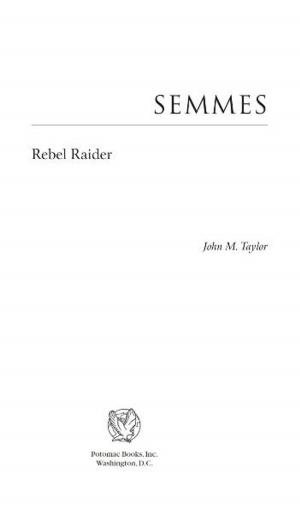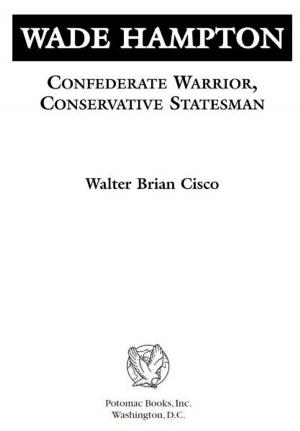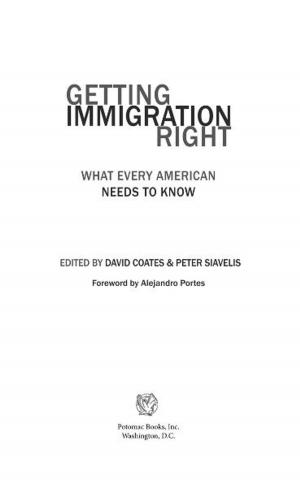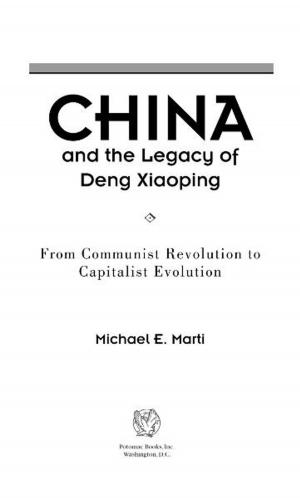Information Operations Matters
Nonfiction, History, Military, Other, Social & Cultural Studies, Political Science, International, International Relations| Author: | Leigh Armistead | ISBN: | 9781597976596 |
| Publisher: | Potomac Books Inc. | Publication: | April 30, 2010 |
| Imprint: | Potomac Books Inc. | Language: | English |
| Author: | Leigh Armistead |
| ISBN: | 9781597976596 |
| Publisher: | Potomac Books Inc. |
| Publication: | April 30, 2010 |
| Imprint: | Potomac Books Inc. |
| Language: | English |
Introduced in 1998 by the Department of Defense, the concept of information operations (IO) proposed to revolutionize the ways in which warfare, diplomacy, and business were conducted. However, this transformation has not come to fruition. Two large gaps remain: between policy and theory, and between the funding needs of IO initiatives and the actual funds the federal bureaucracy is willing to provide to support these operations. These two discrepancies are central to the overall discussions of Information Operations Matters.
Leigh Armistead explains why these gaps exist and suggests ways to close them. Also in discussing best practices in IO, he clarifies how the key agencies of the U.S. government can use the inherent power of information to better conduct future strategic communication campaigns. Information Operations Matters presents a more pragmatic approach to IO, recommending that IO policy be made surrounding usable concepts, definitions, theories, and capabilities that are attainable with the resources available. To meet the threats of the future as well as those facing us today, Armistead argues, it is necessary to use this new area of operations to the greatest extent possible.
Leigh Armistead explains why these gaps exist and suggests ways to close them. Also in discussing best practices in IO, he clarifies how the key agencies of the U.S. government can use the inherent power of information to better conduct future strategic communication campaigns. Information Operations Matters presents a more pragmatic approach to IO, recommending that IO policy be made surrounding usable concepts, definitions, theories, and capabilities that are attainable with the resources available. To meet the threats of the future as well as those facing us today, Armistead argues, it is necessary to use this new area of operations to the greatest extent possible.
Introduced in 1998 by the Department of Defense, the concept of information operations (IO) proposed to revolutionize the ways in which warfare, diplomacy, and business were conducted. However, this transformation has not come to fruition. Two large gaps remain: between policy and theory, and between the funding needs of IO initiatives and the actual funds the federal bureaucracy is willing to provide to support these operations. These two discrepancies are central to the overall discussions of Information Operations Matters.
Leigh Armistead explains why these gaps exist and suggests ways to close them. Also in discussing best practices in IO, he clarifies how the key agencies of the U.S. government can use the inherent power of information to better conduct future strategic communication campaigns. Information Operations Matters presents a more pragmatic approach to IO, recommending that IO policy be made surrounding usable concepts, definitions, theories, and capabilities that are attainable with the resources available. To meet the threats of the future as well as those facing us today, Armistead argues, it is necessary to use this new area of operations to the greatest extent possible.
Leigh Armistead explains why these gaps exist and suggests ways to close them. Also in discussing best practices in IO, he clarifies how the key agencies of the U.S. government can use the inherent power of information to better conduct future strategic communication campaigns. Information Operations Matters presents a more pragmatic approach to IO, recommending that IO policy be made surrounding usable concepts, definitions, theories, and capabilities that are attainable with the resources available. To meet the threats of the future as well as those facing us today, Armistead argues, it is necessary to use this new area of operations to the greatest extent possible.















